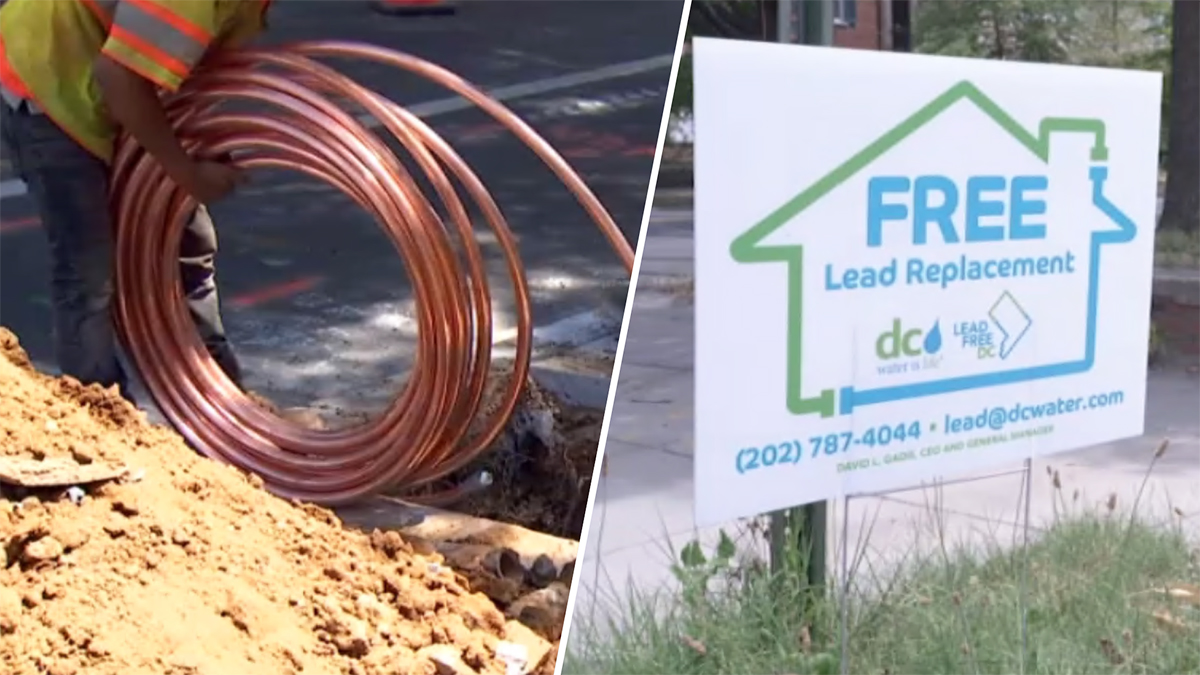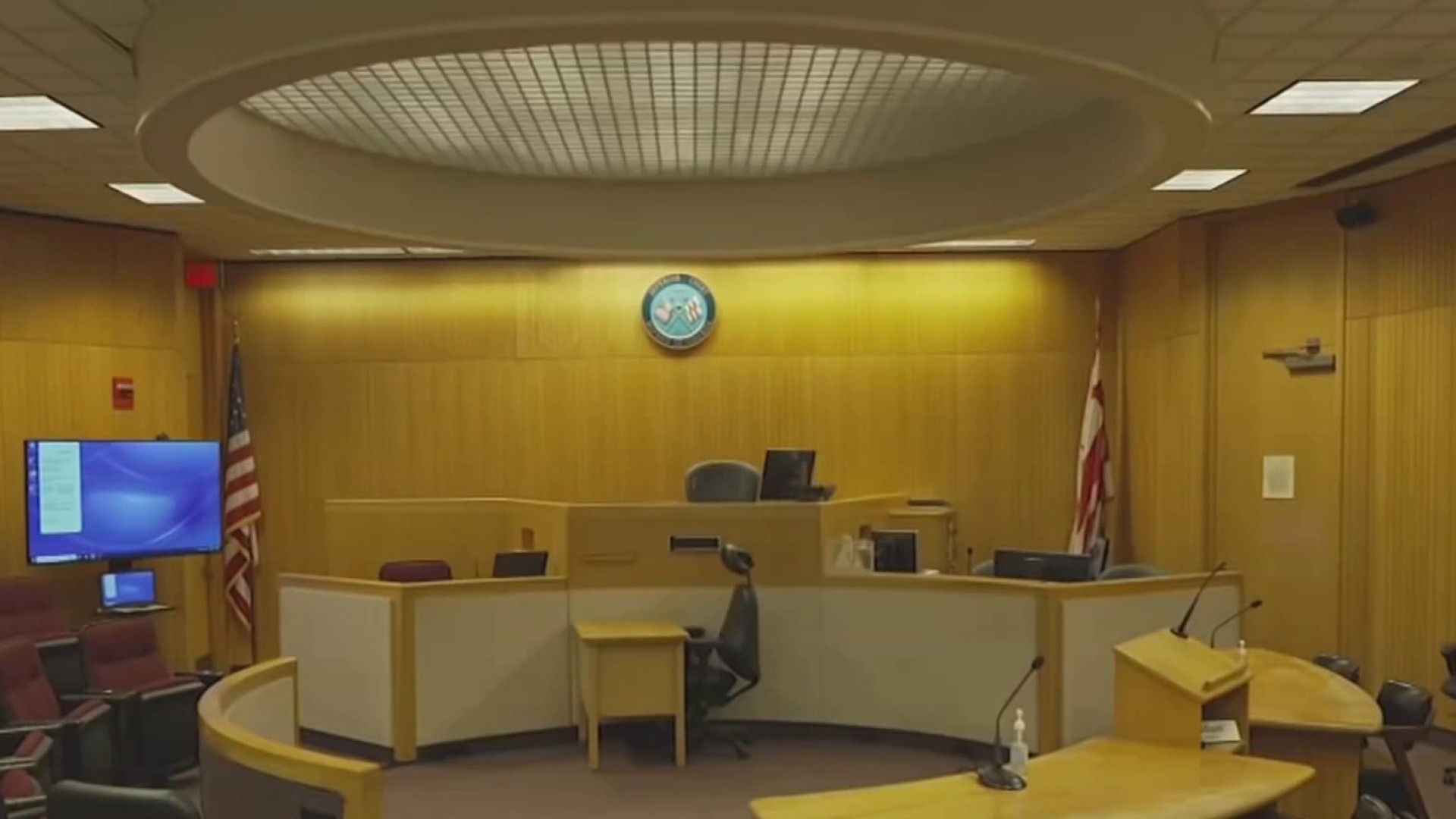This report is part of News4 and Telemundo 44’s Fighting Fentanyl series. Go here for full coverage.
Malcolm Kent’s parents paged through family photo albums in their home in Northern Virginia and pointed out their favorites. The pictures show the teenager together with his family and wearing his school wrestling and lacrosse uniforms.
Malcolm loved sports and volunteering with children at his family’s church.
The Kents, a military family, had high hopes for their oldest son. But everything changed last January.
We've got the news you need to know to start your day. Sign up for the First & 4Most morning newsletter — delivered to your inbox daily. Sign up here.
Malcolm died at home in Annandale of fentanyl poisoning.
“When I went in to check on him the next morning, that's when we found out that he had passed away during the night,” his father, Absolon Kent, said.

Malcolm’s parents believe his social anxiety led him to self-medicate. He had been in recovery for addiction to vaping and THC products. His parents said they never considered fentanyl until they read their son’s autopsy report.
Investigations
Investigations by the News4 I-Team
Malcolm’s mother, Thurraya Kent, said she was stunned by the power of a tiny amount of the drug.
“Something that, no kidding, is basically the size of a Tic Tac and will take out your family?” she asked in disbelief.
Malcolm finished high school in Fairfax County but his celebrations were cut short.
“He never saw his diploma. They came and presented it to us, but he didn't see that he did accomplish that,” his mother said, fighting tears.
Malcolm’s parents suspect he got pills from other students.
He wasn’t the only Fairfax County teen to die from fentanyl last year. Four other teens died, and almost 60 teens suffered non-fatal overdoses, in the highest number in four years.

“You would hear every month or two, there would be another one,” recent high school graduate Marina Cura said.
What an Arlington student overheard about drug sales
Marina graduated last year from Arlington’s Wakefield High School, where two freshmen died in 2023 of fentanyl poisoning. Their deaths sparked community outrage and protests from parents who wanted to see more done to protect students.
After one of the deaths, Marina was so unnerved by what she heard two students talking about in a bathroom that she reported it.
“They started saying stuff like, ‘Oh, he was one of my best buyers. And, you know, he must have just taken the whole pill instead of half of it,’” she recalled.

Marina said she felt a mixture of anger and disgust.
“I was like, ‘How are these people, like, casually having a conversation about selling the drugs that killed a student?’” she said.
Why Loudoun County schools are planning a recovery school
In nearby Loudoun County, Jennifer Evans is director of Student Mental Health Services for public schools.
“We’ve seen many who have chosen to take a pill for the first time and not waking up,” she said.
Evans teaches students and their parents how to spot signs of drug abuse and how to use naloxone, the overdose reversal drug. In trainings, parents walk away with kits that could save a life.
News4 asked Evans what she would say to a parent who says, "That’s not my kid. That’s not my problem.”
“I would rather you come to have the information, so, maybe it may not be your kid, but it might be one of your child’s friends. It takes a village to address this,” she replied.
Next year, Evans is expected to lead Loudoun County’s first school for students who want to continue their education while in recovery. Housed in a separate building, the school still awaits funding.
“It’s not treatment. It’s not an intensive outpatient program. But it would be a school environment with smaller teacher-to-student ratios,” Evans said.
One aim of the planned school is to help steer students away from triggers that could lead to drug use.
How Fairfax County schools are trying to help students struggling with drug use
In Fairfax County, Michelle Reid, the public schools superintendent met with the Kents and other families who lost children to fentanyl, sharing some of their stories online and hoping to break through the noise.
“We don’t pause sometimes and just take a moment and sit with the grief that surrounds this topic,” Reid said.

The superintendent said she’s trying to direct families to resources available for students struggling with drug use. Fairfax County Public Schools are focused, too, on positive distractions such as sports and events, she said.
“We know those are factors that will support healthy mental health and decrease substance use,” she said.
How DC-area school districts track and report fentanyl emergencies
The News4 I-Team asked school districts how they track and report when students have a medical emergency related to fentanyl.
In Virginia, when there’s an overdose, schools notify parents the next day because of an executive order by the governor. Local police track fatal and non-fatal overdoses.
It’s more complicated in Maryland. Montgomery County Public Schools said they only notify the parents of a child who overdoses. They said they could not provide specific overdose data, citing privacy concerns. In Prince George’s County, the school district said there were 47 incidents last school year when a student took a drug or unknown substance.
In D.C., school officials track how often naloxone is administered. Last school year, it was given to eight students. School officials said no students died.
‘You’re not going to be able to do this thing alone’
In Annandale, the Kents urged the families of young people struggling with drug use to reach out for help.
“You’re not going to be able to do this thing alone, so, you got to let people know, ‘Hey, we need support,’” Absolon Kent said.

The Kents said they hope that by telling Malcolm’s story, they can save lives.
They said they’ll never forget their son’s last night with them and the last prayer he shared with his family.
“He prayed and he said, ‘God, forgive me for the pain that I’m causing my family. And just, I don’t want to hurt anymore,'" Absolon Kent said.
If you need help for a young person struggling with fentanyl use in the D.C. area, many resources are available. Go here for information on how to find help.
Reported by Tracee Wilkins, produced by Caroline Tucker, shot by Jeff Piper and Steve Jones, and edited by Jeff Piper



